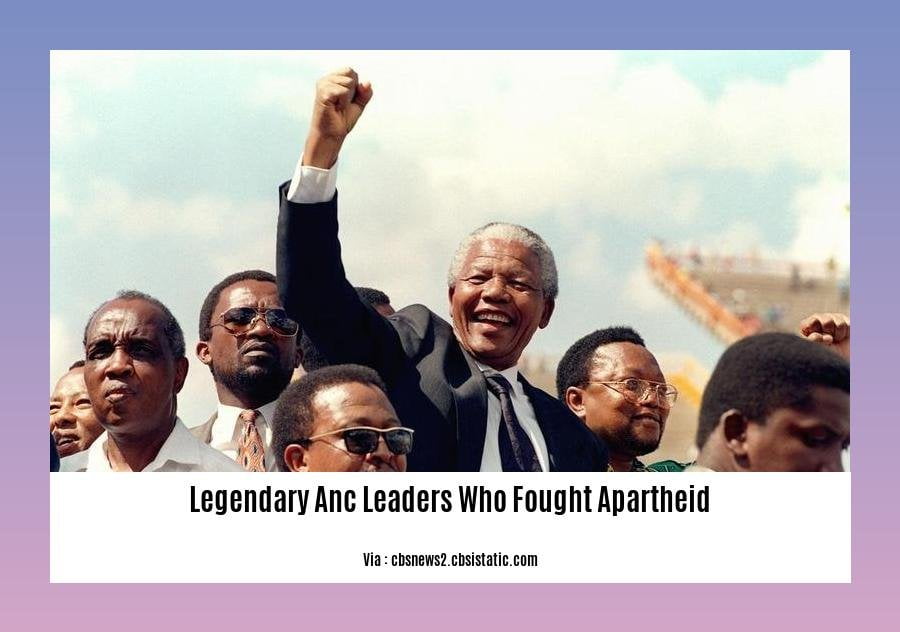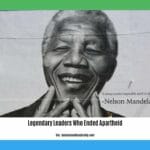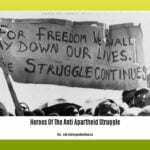In the annals of history, the African National Congress (ANC) stands as a beacon of resilience and resistance against the oppressive apartheid regime in South Africa. This article delves into the extraordinary lives of the legendary ANC leaders who bravely fought for freedom and equality. Through their unwavering determination and personal sacrifices, they shaped the course of history, inspiring generations to come. Join us as we explore the remarkable stories of these unsung heroes who played a pivotal role in dismantling one of the most abhorrent systems of racial segregation and oppression the world has ever witnessed: Legendary ANC Leaders who Fought Apartheid.
Key Takeaways:
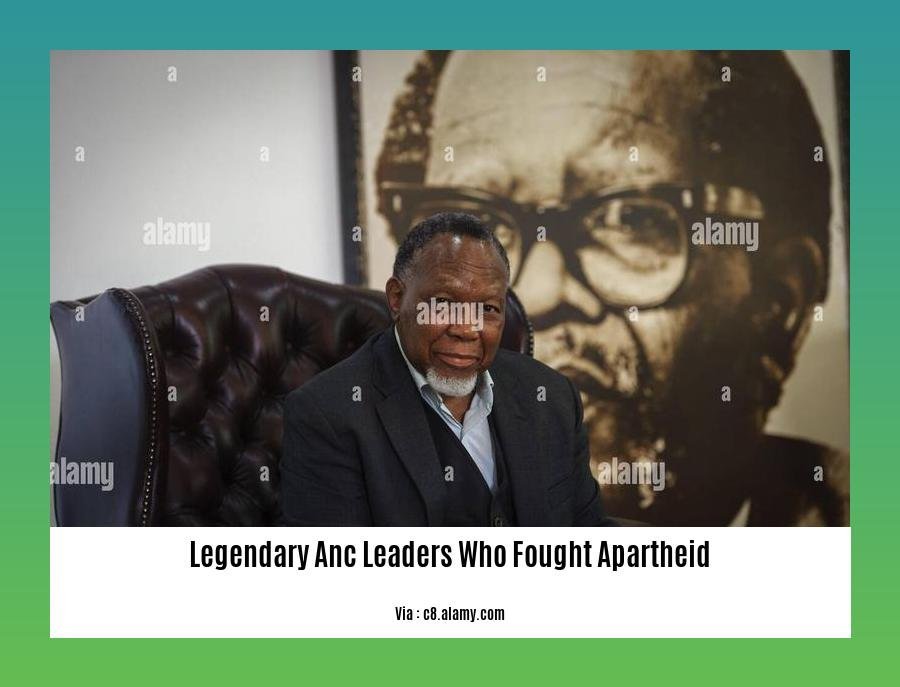
- Apartheid was a discriminatory system enforced in South Africa from 1948 to 1994.
- The anti-apartheid movement fought for an end to racial discrimination and a non-racial democracy.
- Nelson Mandela, Desmond Tutu, and Walter Sisulu were key leaders of the movement.
- The movement gained international support and played a crucial role in ending apartheid.
Legendary ANC Leaders Who Fought Apartheid
Oliver Reginald Tambo
–President of the ANC in exile
–Negotiated with the apartheid government for a peaceful transition to democracy
–Played a crucial role in the development of the Freedom Charter
Tambo led the ANC through some of its most difficult years, providing steady leadership during the ANC’s banishment from South Africa.
Walter Max Ulyate Sisulu
–Imprisoned on Robben Island alongside Nelson Mandela
–Known for his organizational skills and dedication to the ANC
–Co-founded the Umkhonto we Sizwe, the ANC’s military wing
Often referred to as “Uncle Walter,” Sisulu was a mentor to many other anti-apartheid activists and a symbol of the ANC’s commitment to non-violent resistance.
Albert Luthuli
–First non-white recipient of the Nobel Peace Prize
–President of the ANC from 1952 to 1967
–Advocated for a non-violent approach to the struggle against apartheid
Luthuli was a charismatic leader who helped to mobilize international support for the anti-apartheid movement. He was also a strong advocate for non-violent resistance, believing that it was the only way to achieve lasting change.
The African National Congress leaders played a pivotal role in the fight against apartheid in South Africa. Their unwavering commitment to equality and justice inspired millions around the world.
Voices such as Nelson Mandela and Archbishop Desmond Tutu became iconic voices against the oppressive regime, capturing the attention of the international community and galvanizing support for the anti-apartheid movement.
Heroes of the anti-apartheid struggle emerged from all walks of life, demonstrating the power of unity and determination in the face of adversity.
Walter Sisulu: Imprisoned Alongside Mandela and Co-Founder of the ANC Military Wing
Key Takeaways:
- Walter Sisulu, born in 1912, was a prominent ANC leader and mentor to Nelson Mandela.
- Alongside Mandela, Sisulu played a crucial role in the anti-apartheid struggle.
- In 1964, Sisulu was convicted of sabotage and sentenced to life imprisonment on Robben Island.
- He was later moved to Pollsmoor Prison for negotiations between the ANC and the government.
- Sisulu remained a stalwart figure in the fight against apartheid until his passing in 2003.
Citation:
Blackpast.org: Walter Sisulu (1912-2003)
Albert Luthuli: First non-white Nobel Peace Prize recipient and advocate for non-violence
Albert Luthuli (1898-1967) was an extraordinary leader who played a pivotal role in the anti-apartheid movement in South Africa. His unwavering commitment to non-violence and his vision of a non-racial society earned him the Nobel Peace Prize in 1960.
As President of the African National Congress (ANC) from 1952 to 1960, Luthuli led the resistance against apartheid. Despite facing imprisonment and constant threats, he remained steadfast in his belief that non-violence was the most effective way to achieve freedom and equality. Luthuli was inspired by the teachings of Mahatma Gandhi and believed that peaceful resistance could ultimately overcome the brutality of the apartheid regime.
Key Takeaways:
- Albert Luthuli was the first non-white Nobel Peace Prize recipient.
- He was a strong advocate for non-violence and a non-racial society.
- Luthuli led the ANC in its resistance against apartheid.
- He faced imprisonment and threats but remained steadfast in his beliefs.
- Luthuli’s legacy continues to inspire those fighting for freedom and equality.
Citation:
Ruth First: Assassinated anti-apartheid journalist and activist
Ruth First was a formidable figure in the anti-apartheid movement, who used her journalistic prowess to expose the atrocities of the apartheid regime. Her fearless reporting and unwavering commitment to justice made her a target of the oppressive government, leading to her tragic assassination in 1982.
First’s life was a testament to the power of journalism and the indomitable spirit of those who fight for freedom.
Key Takeaways:
- Ruth First was a courageous journalist and anti-apartheid activist who fearlessly exposed the evils of apartheid.
- She was tragically assassinated in 1982 by the South African government, silencing her powerful voice.
- Despite her untimely death, Ruth First’s legacy lives on as a symbol of the struggle for freedom and equality.
Source:
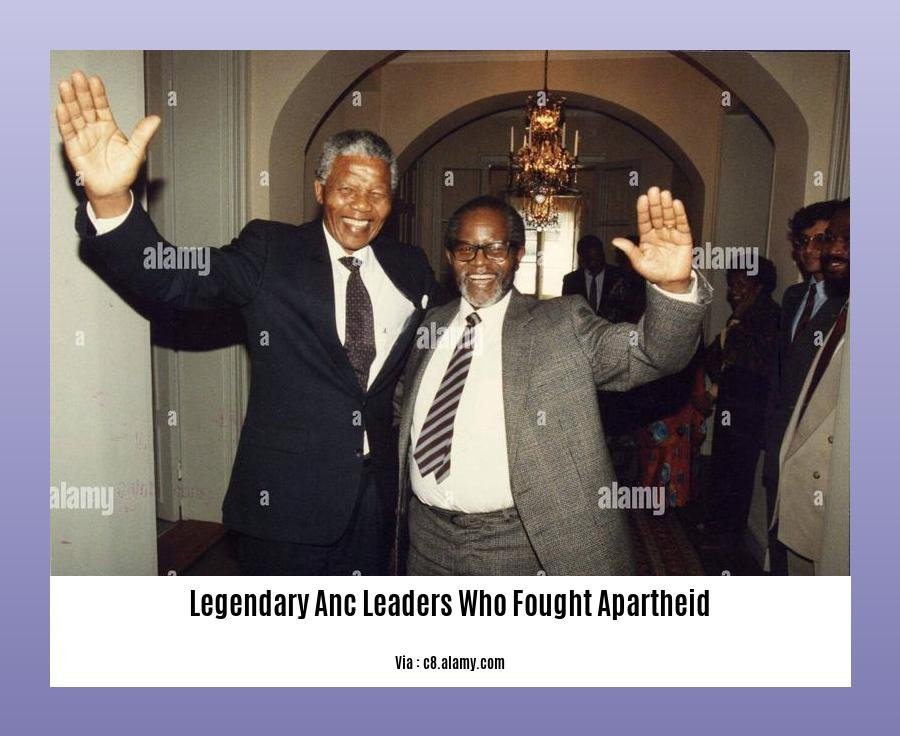
FAQ
Q1: Who were the key leaders of the ANC who fought against apartheid?
A1: Key leaders of the ANC in the anti-apartheid struggle included Nelson Mandela, Desmond Tutu, and Walter Sisulu.
Q2: What were the main strategies employed by the ANC in the fight against apartheid?
A2: The ANC used a variety of strategies in the fight against apartheid, including nonviolent resistance, civil disobedience, and political activism.
Q3: What was the significance of the Nobel Peace Prize awarded to Albert Luthuli?
A3: Albert Luthuli was the first African to be awarded the Nobel Peace Prize, which recognized his commitment to non-violent resistance and his vision of a non-racial society in South Africa.
Q4: How did Ruth First contribute to the anti-apartheid movement?
A4: Ruth First was an anti-apartheid activist and journalist who was involved in the founding of the South African Student Congress and the National Union of South African Students. She was also one of the defendants in the Treason Trial of 1956-1961.
Q5: What was the impact of Walter Sisulu’s imprisonment on the anti-apartheid movement?
A5: Walter Sisulu was imprisoned for life on Robben Island for his role in the anti-apartheid struggle. His imprisonment removed a key leader from the movement, but it also served as a symbol of the resilience and determination of the ANC.
- Crypto Quotes’ Red Flags: Avoid Costly Mistakes - June 30, 2025
- Unlock Inspirational Crypto Quotes: Future Predictions - June 30, 2025
- Famous Bitcoin Quotes: A Deep Dive into Crypto’s History - June 30, 2025
